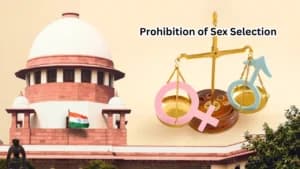In a detailed 108-page ruling delivered on October 13, 2025, Justice Mini Pushkarna of the Delhi High Court dismissed the long-running patent infringement suit filed by Koninklijke Philips N.V. against Delhi-based manufacturer M. Bathla & Anr. The case, nearly two decades old, revolved around allegations that Bathla's company produced Video Compact Discs (VCDs) using Philips patented digital transmission system without a license.
The bench held that Philips had 'failed to establish any infringement' and found significant gaps in its evidence and arguments.
Background
The dispute began in 2004 when Philips, represented by senior advocate Pravin Anand, sued M. Bathla for allegedly manufacturing VCDs that used its patented compression technology - Indian Patent No. 175971. The Dutch electronics giant claimed that the technology, granted patent protection in 1990, formed the backbone of VCD and audio compression systems used globally.
Following initial hearings, the court appointed local commissioners to inspect Bathla's manufacturing units in Delhi and Haryana. Machines, discs, and other materials were seized for examination. Philips accused the defendants of withholding production records, prompting even a contempt petition, later withdrawn on fair terms.
Bathla, represented by Ms. Swathi Sukumar, denied infringement, maintaining that the company manufactured CDs and VCDs only on order and did not use Philips’ patented system.
Court’s Observations
The court's analysis went deep into technical mapping - whether Bathla's VCDs used the digital transmission system Philips claimed was its proprietary technology. Justice Pushkarna noted that while Philips showed the end result of compression was similar, it could not demonstrate that the process was the same.
"The plaintiff has not been able to show that the data was packed in a 'substantially similar' way as per the patented system," the bench observed.
She further pointed out that Philips relied heavily on correspondence and standard-setting documents (ISO/IEC 11172-3) but failed to establish any link between the patent and mandatory technical standards.
During cross-examination, Philips witness admitted that no executed license agreements or royalty data were filed in court, saying such details were "visible on the website." The court dismissed this as insufficient proof.
The bench also noted that the correspondence between the parties from 2001 to 2004, which Philips cited as proof of acknowledgment, was inadmissible.
"The negotiations were held without prejudice, and cannot be treated as admission of liability," the judge remarked, citing Section 23 of the Indian Evidence Act.
Decision
In her 108-page judgment, Justice Mini Pushkarna meticulously examined each issue framed in the 2018-renumbered commercial suit. Concluding the matter, she ruled:
"The Digital Transmission System covered in the suit patent is not present or part of the replication process employed by the defendants. The plaintiff has not been able to establish infringement."
Accordingly, the court dismissed Philips claim for ₹20 lakh in damages and declined all other reliefs.
The judge added that even though Philips patent had expired in 2010, the company could not retrospectively claim compensation for alleged infringement that was never proven.
In closing, the bench noted:
"The present suit is without any merit and is accordingly dismissed."
No order as to costs was made.
Case Title: Koninklijke Philips N.V. v. M. Bathla & Anr.














